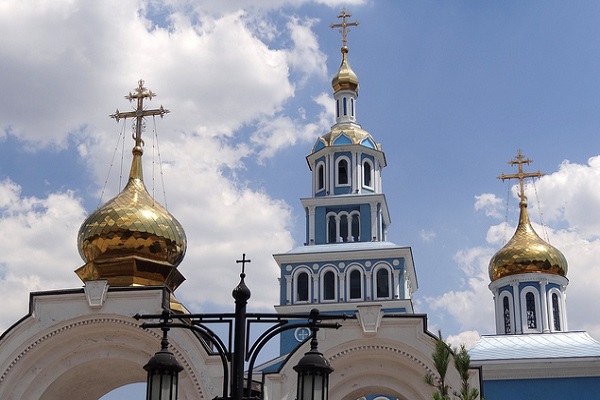
The Most Unhappy Christian Group is the Eastern Orthodox
- By Gary Nguyen --
- 14 May 2018 --

Over 400,000 people across the world participated in the research
A working paper in 2015 brought into focus the disenchantment felt by Eastern Europeans even after they enjoyed a better quality of life with the fall of communism decades before. The study reported people living in former communist countries are much less happy compared to their counterparts in other regions of the globe.
The Most Unhappy Christian Group is the Eastern Orthodox[/tweetthis]
The World Bank policy research working paper bearing the title “Communism as the Unhappy Coming” analyzed global data. The study showed believers in Orthodox Christianity are the unhappiest among all Christian followers. More than 400,000 people were surveyed scattered across several countries which make up 90 percent of the population of the world.
The paper revealed believers of the Eastern Orthodox church are much less happy when compared with Protestants and Catholics[/tweetit] utilizing data covering about 100 nations globally. The document stated that when compared with Protestants, Catholics, and even non-believers, followers of the Orthodox church tended to prefer old ideas and have less social capital. They also prefer safe jobs and the collectivist approach. They regard God as a supreme authority figure beyond any rational grasp.
The World Bank report is not the only one that has linked Orthodoxy and lower happiness levels. The paper indirectly proves that the religious enjoy a better life satisfaction. The study reveals that believers of the Eastern Orthodox church usually prefer the political left compared to other Christians. They want the government to be involved in the nation's economy. This made the road clear for communism to thrive even after its core philosophy of atheism as propagated by the Marxist-Leninist philosophy came to an end. Religion was suppressed during communist times. Property and status both were taken away from the Orthodox Church at that time.
Elena Nikolova, who co-authored the paper with Simeon Djankov, said that the communist government at that time did not abolish all aspects of traditional society. A few key elements of the Protestant and the Orthodox churches were kept by communists and even nurtured for being useful. One of them is the habit of being faithful to the authorities. The cultural differences were utilized to advance communism as a kind of governance. Helping this scenario was the fact that it was believed by communist leaders that communism should substitute Christianity.



















